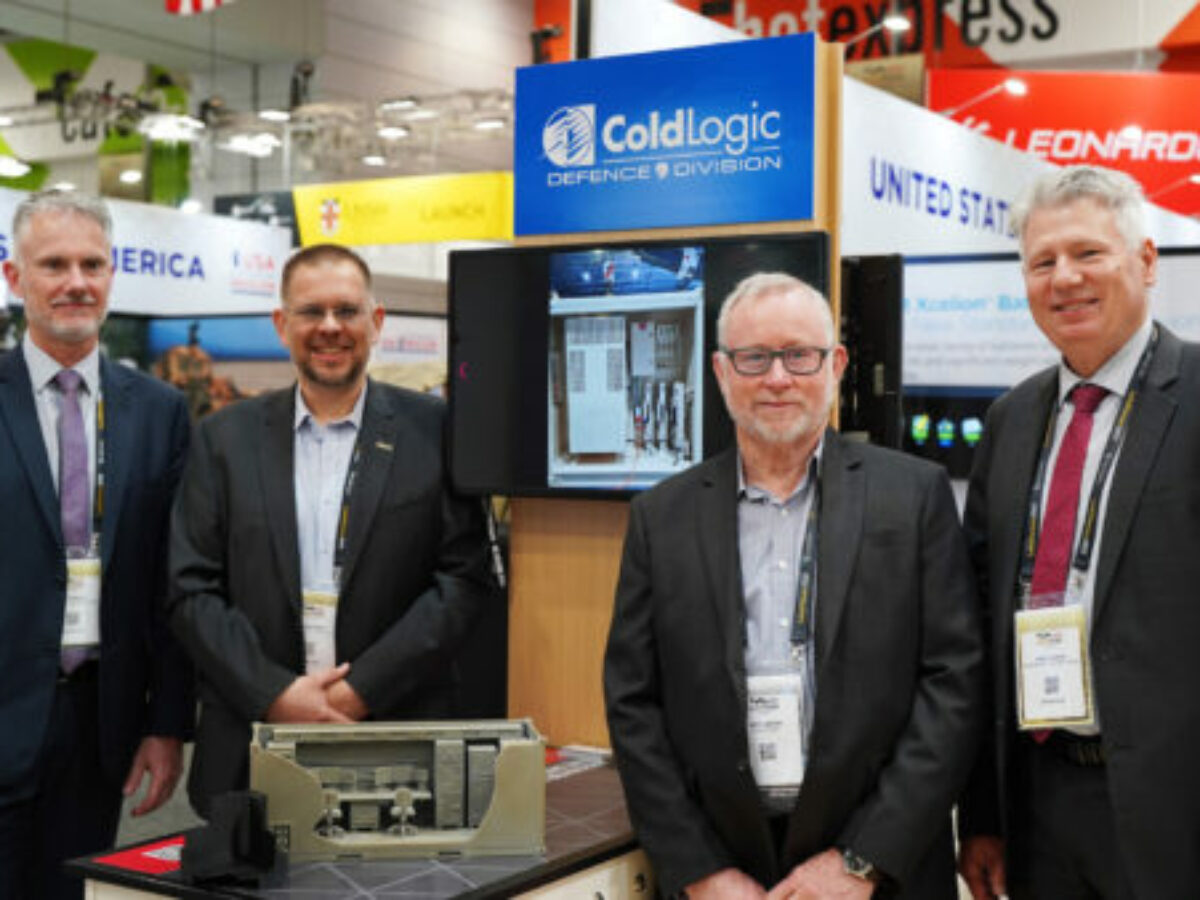Manufacturing news briefs — stories you might have missed

EMVision gets clinical study ethics approval, $1.2 million milestone payment
ASX-listed imaging technology business EMVision Medical Devices announced on Tuesday the receipt of Human Research Ethics Committee (HREC) approval for a multi-centre clinical study at Liverpool Hospital, Royal Melbourne, and Princess Alexandra Hospital, Brisbane. Near-term activation of the first site at Liverpool Hospital would proceed under the direction of principal investigator, Dr Dennis Cortado, according to a statement. The study follows a prior successful pilot study with 50 patients, which “demonstrated encouraging capability to accurately classify and localise stroke types.” Additionally, a further $1.2 million in milestone grant payments were activated as part of a partnership with the Australian Stroke Alliance (ASA) to develop mobile diagnostic imaging for road and air ambulances.
Cold Logic's defence ECU launched
Refrigeration and controlled environment system manufacturer Cold Logic has announced its first order for a batch of Defence-compliant environmental control units (ECUs) for deployable shelter systems. Defence SA‘s website notes that Cold Logic developed the unit as there was no such option available in Australia, which forced Defence to look to overseas manufacturers. The company's ECU45 unit “builds on the previous success of Cold Logic’s ECU38 unit, a first of type system for use in Daronmont deployable shelters.” Shelters mostly have a constant heat load from electronic equipment, irrespective of ambient temperatures, said R&D manager Dr Michael Riese (second from left.) “This brings its own challenges, both at high and low ambient temperature conditions,” he added. “Our product addresses these challenges as well as a number of other shortfalls from overseas manufactured products when applied to the Australian context.”
Fortescue and Deutsche Bahn partner to investigate carbon-free internal combustion engine
Fortescue Future Industries, the green energy division of Fortescue Metals Group, announced on Tuesday that it has made an agreement with Deutsche Bahn (DB) to collaborate on research investigating green hydrogen and ammonia gas fuels in rail applications. Both are working to remove diesel from their operations and replace it with green fuels and zero-emission solutions, the pair said in a statement, and follows an earlier Memorandum of Understanding centred on cooperation on collaboratively on decarbonisation technology opportunities. Fortescue founder and Executive Chairman Dr Andrew Forrest said: “We know that cutting edge technology and real-world solutions are key to addressing climate change which is why Fortescue is partnering with Deutsche Bahn, Europe’s leading mobility and logistics provider.”
Rinnai and Toyota explore cooking with hydrogen
In other hydrogen-related news, appliance maker Rinnai Corporation, Automotive company Toyota Motor Corporation and Woven Planet Holdings (a living laboratory being developed by Toyota in Japan) have announced they will begin collaborative efforts on hydrogen in food preparation, aiming to “validate the domestic abilities” of the gas. The companies said in a statement that they will “apply a scientific approach and fully explore all possible ways to help increase the popularity of hydrogen-powered cooking” and “focus on the safest and most efficient combustion methodologies that also optimize the taste and texture of ingredients without emitting CO2 in the cooking process.” CEO of Woven Planet and Toyota board member James Kuffner said that cooking methods based on propane or natural gas emit CO2, with the consortium looking to new, more sustainable ways.
Hearing Australia urges action on occupational noise-induced hearing loss
Hearing Australia has warned that 1.1 million Australians continue to be exposed to harmful levels of noise in their workplace, and that workers across all industries should protect their ears from dangerously loud sounds. The announcement coincided with the beginning of National Safe Work month. The organisation's Principal Audiologist Karen Hirschausen said that the workplace is one of the most common sources of noise-induced hearing loss (NIHL), with that also the most preventable kind of hearing loss. “Workplace noise can and should be managed by implementing a range of control methods – and that can be as simple as limiting time spent in noisy environments, using quiet equipment and ensuring you wear appropriate hearing protection,” said Hirschausen. She advised early intervention through regular hearing checks and seeing an audiologist if changes to hearing were noticed.
Picture: Lee Stanley, Michael Riese, Jeff Cannan, Kent Norris (credit Defence SA)
Topics Manufacturing News
@aumanufacturing Sections
Analysis and Commentary Awards casino reviews Defence Gambling Manufacturing News Online Casino Podcast Technology Videos





